Search
Did you mean: Lysander?
Search Results

Image
Alexander Hamilton
Alexander Hamilton, oil on canvas portrait by John Trumbull, 1806.
National Portrait Gallery, Washington, D.C.
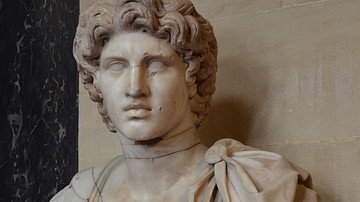
Image
Alexander the Great, Roman Era bust
Roman bust of Alexander the Great, excavated from the ruins of Herculaneum. (Blenheim Palace Oxfordshire, UK)
![Alexander the Great [Profile View]](https://www.worldhistory.org/img/c/p/360x202/1047.jpg?v=1750706345)
Image
Alexander the Great [Profile View]
A bust of Alexander the Great, 2nd-1st century BCE. Said to be from Alexandria, Egypt. (The British Museum, London).
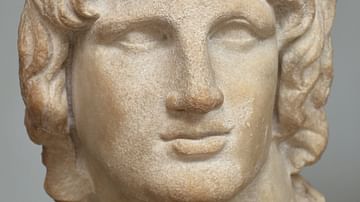
Image
Alexander the Great, Marble Head
Marble portrait of Alexander the Great, 2nd-1st century BCE, said to be from Alexandria, Egypt. (British Museum, London)

Image
Alexander The Great and Roxane
Alexander The Great and Roxane (1756) by Pietro Antonio Rotari (1707–1762). Hermitage Museum, Saint Petersburg, Russia.
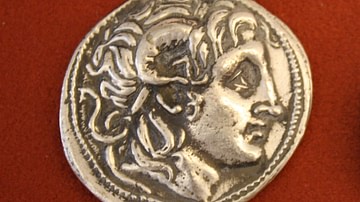
Image
Alexander as Ammon-Zeus
Silver tetradrachm from Thrace, reign of Lysimachus, 323-281 BCE. Head of Alexander as Ammon-Zeus. (Alpha Bank Numismatics Museum, Corfu)
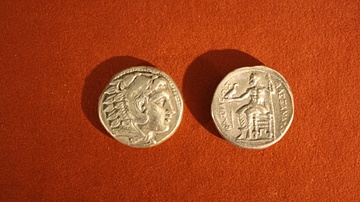
Image
Alexander the Great, Macedonian Silver Tetradrachm
Silver tetradrachm from the reign of Alexander the Great, 336-323 BCE. O: Head of Hercules. R: Zeus seated on a throne holding an eagle.
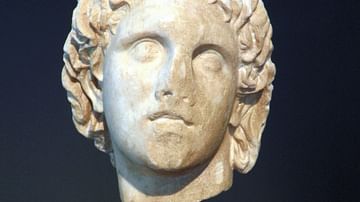
Image
Alexander the Great, from Pella
Marble head of Alexander the Great. Chance find from the area of Giannitsa near Pella. End of the 4th century BCE. (Pella Archaeological Museum, Greece).
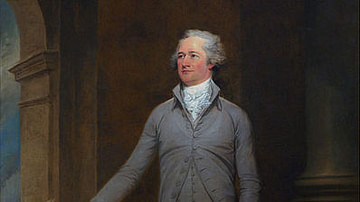
Image
Alexander Hamilton as Treasury Secretary, 1792
Alexander Hamilton, oil on canvas portrait by John Trumbull, 1792.
Metropolitan Museum of Art, New York.
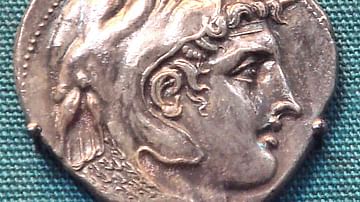
Image
Alexander the Great, Ptolemaic Coin of Alexandria
A silver coin of Alexandria depicting Alexander the Great. Reign of Ptolemy I (366 BCE – 282 BCE). (British Museum, London)